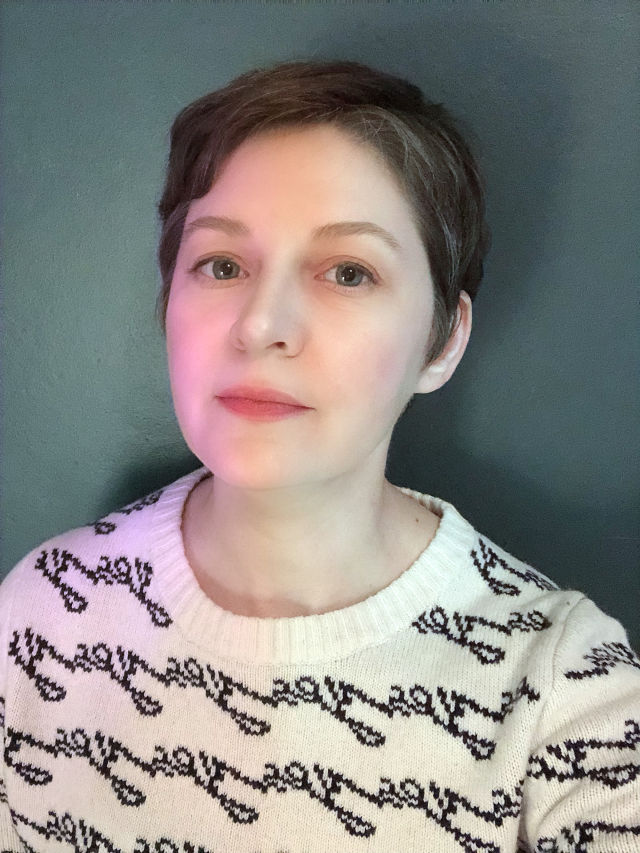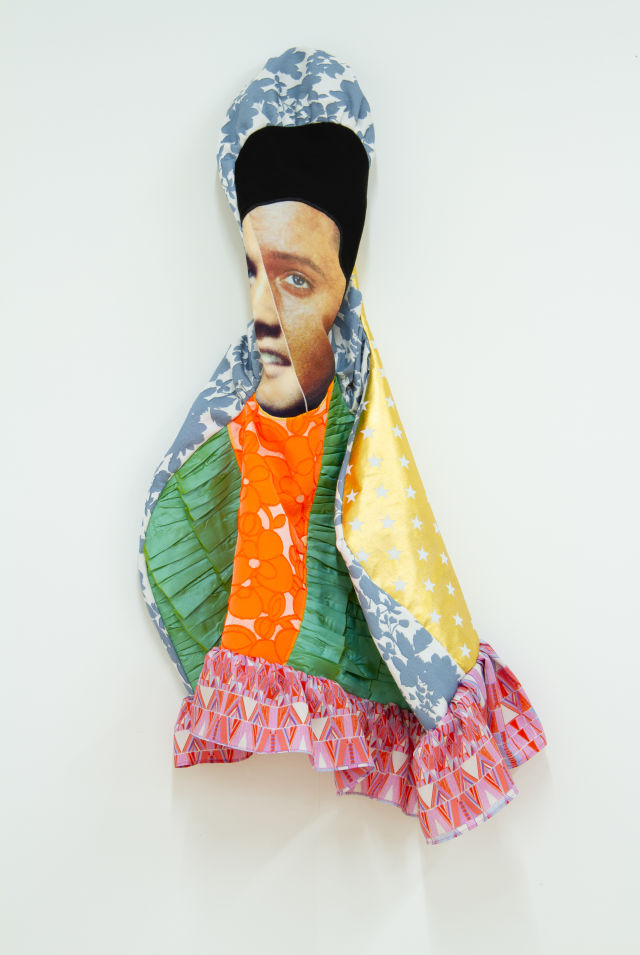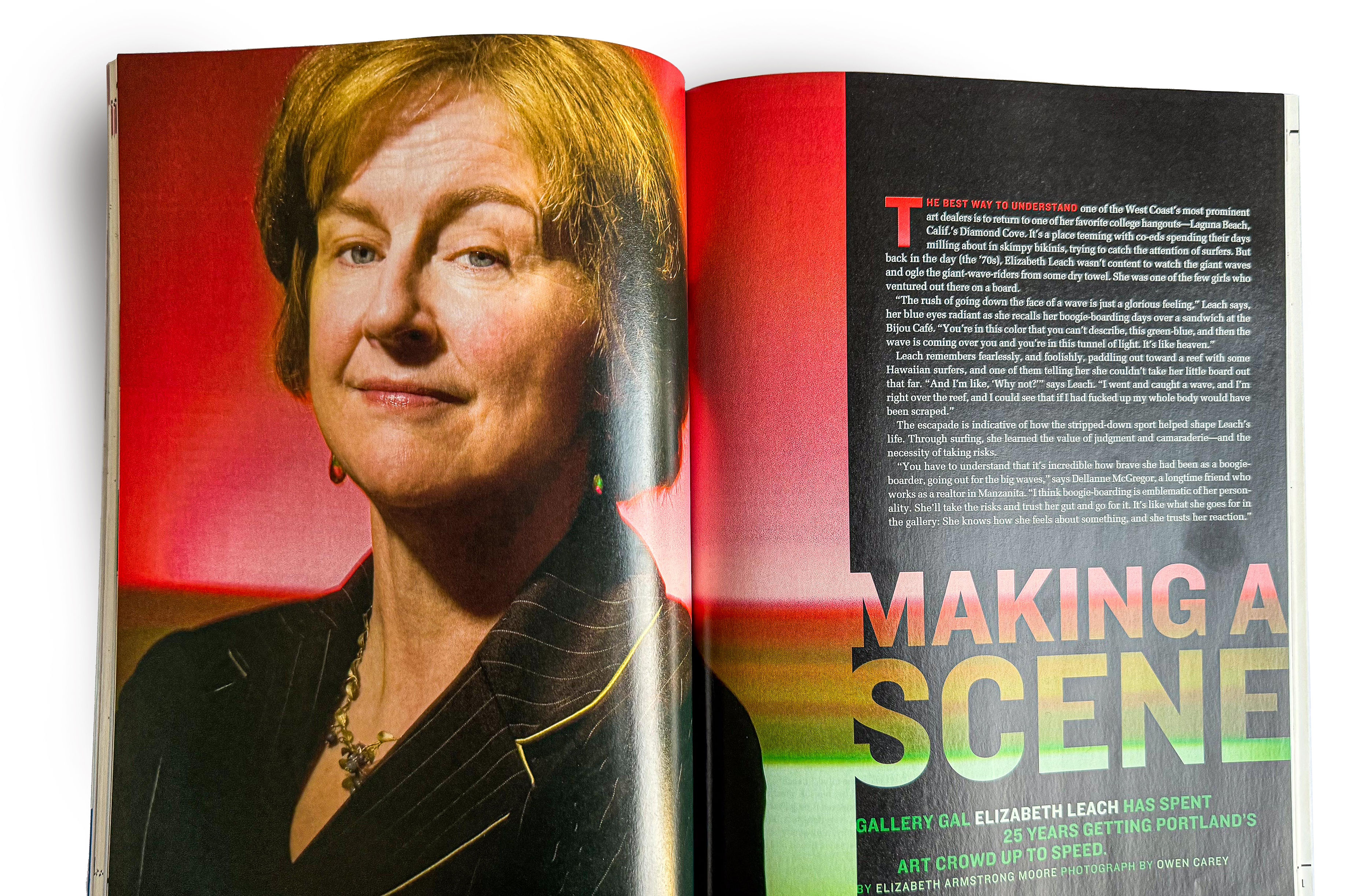Portland Artist Wins Warhol Grant to Write About Our City’s Challenged Arts Scene

Image: Courtesy Bean Gilsdorf
Portland artist and arts writer Bean Gilsdorf is one of just 22 writers nationally to land a prestigious Andy Warhol Foundation Grant this year for arts writing. Her project? To write about Portland’s visual arts scene and how creative practitioners can survive here.
The Grant awarded a total of $675,000 to 22 writers this year, with Gilsdorf receiving $30,000 for a series of essays on the “past, present, and future of Portland, Oregon’s art ecosystem,” per the press release. The jurists, says the foundation’s arts writers program director Pradeep Dalal, chose Gilsdorf for writing they said was, “critical, insightful, and self aware,” and a proposal they described as “consequential.” “They very much appreciated her specific and directed inquiry on the economic and social conditions of a local art scene in Portland, with a sense of the larger global context,” said Dalal.
Gilsdorf, whose work includes striking fabric sculptures featuring well known American figures, said the concept for this writing project was seeded while on an arts residency in Cleveland, Ohio, where she interviewed people about their regional art scene. “One of the things that I was asking them was ‘Do you have an art market here?’” she recalls. “’Do you feel supported by your peers? Is there a sense of community?’ And while I was talking to these people in Cleveland, I was thinking about Portland.”
Gilsdorf first lived in Portland between 1998 and 2009, returning in 2018 after extended periods in San Francisco and Warsaw. “I was thinking a lot about the ways in which Portland's art scene has changed from when I was here the first time in the, you know, in the late '90s and 2000s,” she says. “I ended up writing an article for [contemporary art magazine] Art in America, about the kinds of spaces that exist in Portland now versus some of the projects that were possible when I lived here the decade before.”
In that piece, lauded by the Andy Warhol Foundation Grant jurists, Gilsdorf examines how the ambitious curatorial projects that were happening here in the late nineties have been replaced by under-the-radar spaces, many of which seem less concerned with selling work and more with transmitting ideas and holding space.

Bird of Paradise, 2020; polyester, wool, silk, chiffon; 33 x 15 x 6 in.
Image: Courtesy Bean Gilsdorf
Her inquiry has led her to think about rising rents and the price of real estate, ultimately asking how artists here are “making their lives work.” “When I started to write the grant application, I had all that in mind,” she says. “But then COVID hit. And I started to think about how that was going to radically change all of this.”
So she sent a proposal to the Foundation which she characterizes as “a series of questions” that she hopes will illuminate things not just for our city. “The answers to these questions will be valuable, I hope, to other arts communities in other mid sized cities—I'm thinking about Detroit and Louisville and Baltimore and Nashville and Cleveland and cities who have a pretty robust art scene, but they’re not the centers of the art world, and so they rarely get talked about.”
Gilsdorf says she’s interested in how the city supports the arts, especially given how much Portland has built its brand around the arts community. The questions she’s asking?
“What I want to find out is, what are people's ideas for supporting artists? How do our current forms of what we consider support actually undercut the stability of the arts community here? How can we talk about things like the vulnerabilities of the gig economy, versus providing flexibility for artists who, maybe for whatever reason can't work a nine to five job? What about the small visual arts organizations? How are they going to survive, as places without endowments? And ultimately, who's responsible?”
Does she have any answers yet? Who is responsible for keeping our arts community thriving? “My answer to that, of course, is we all are, but some people have more power than others. And I want to talk to them about their ideas about responsibility.”




